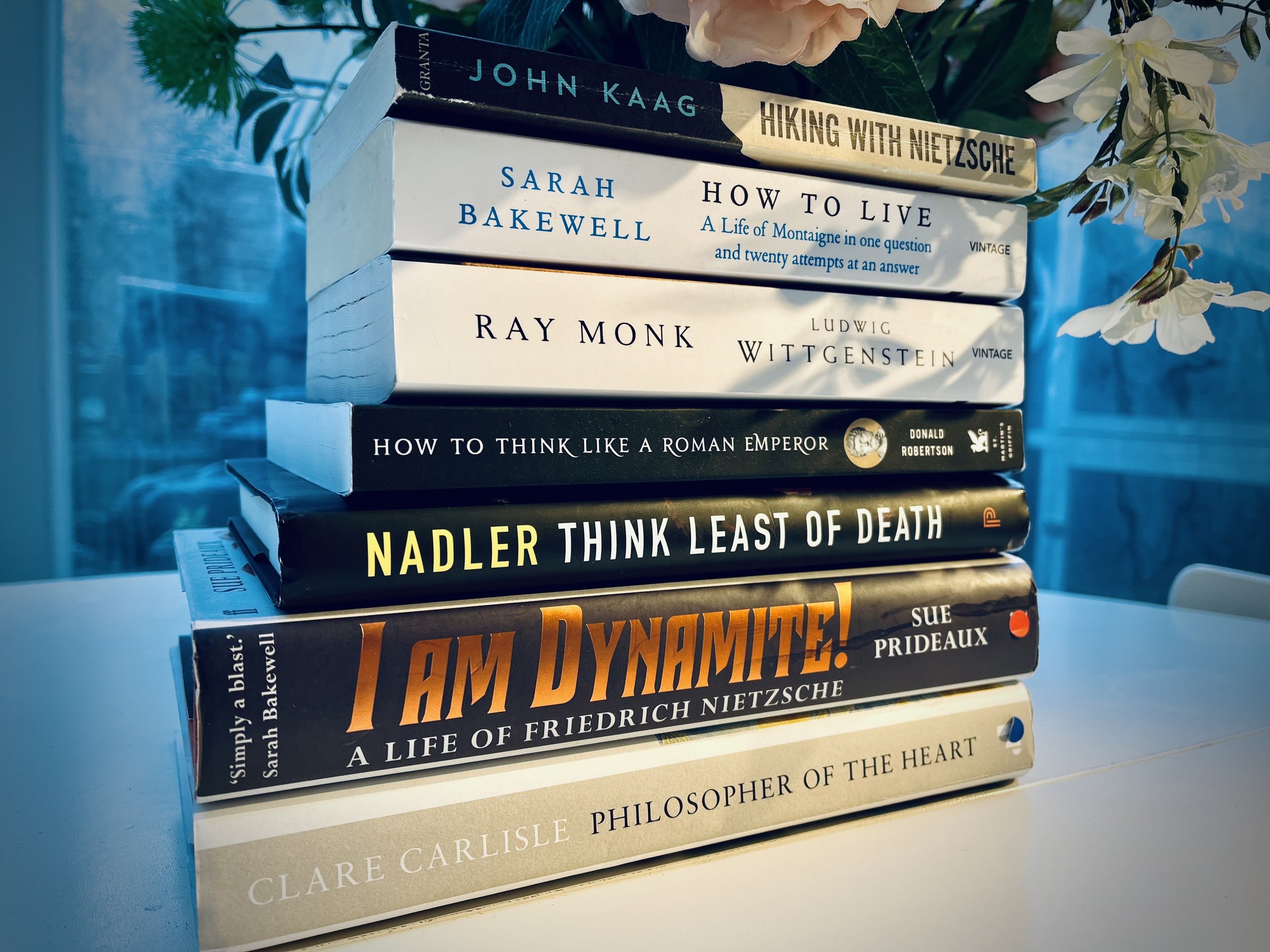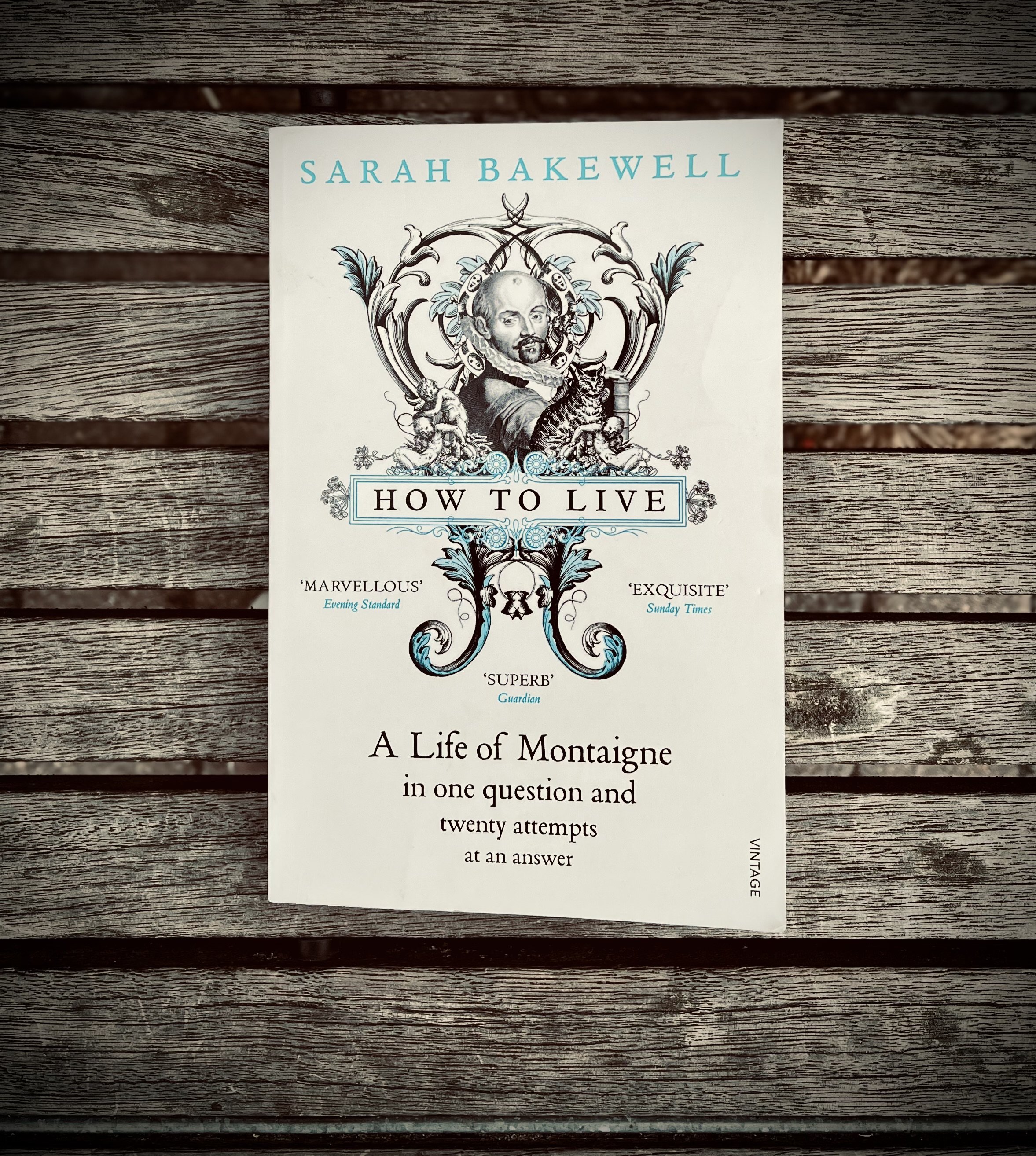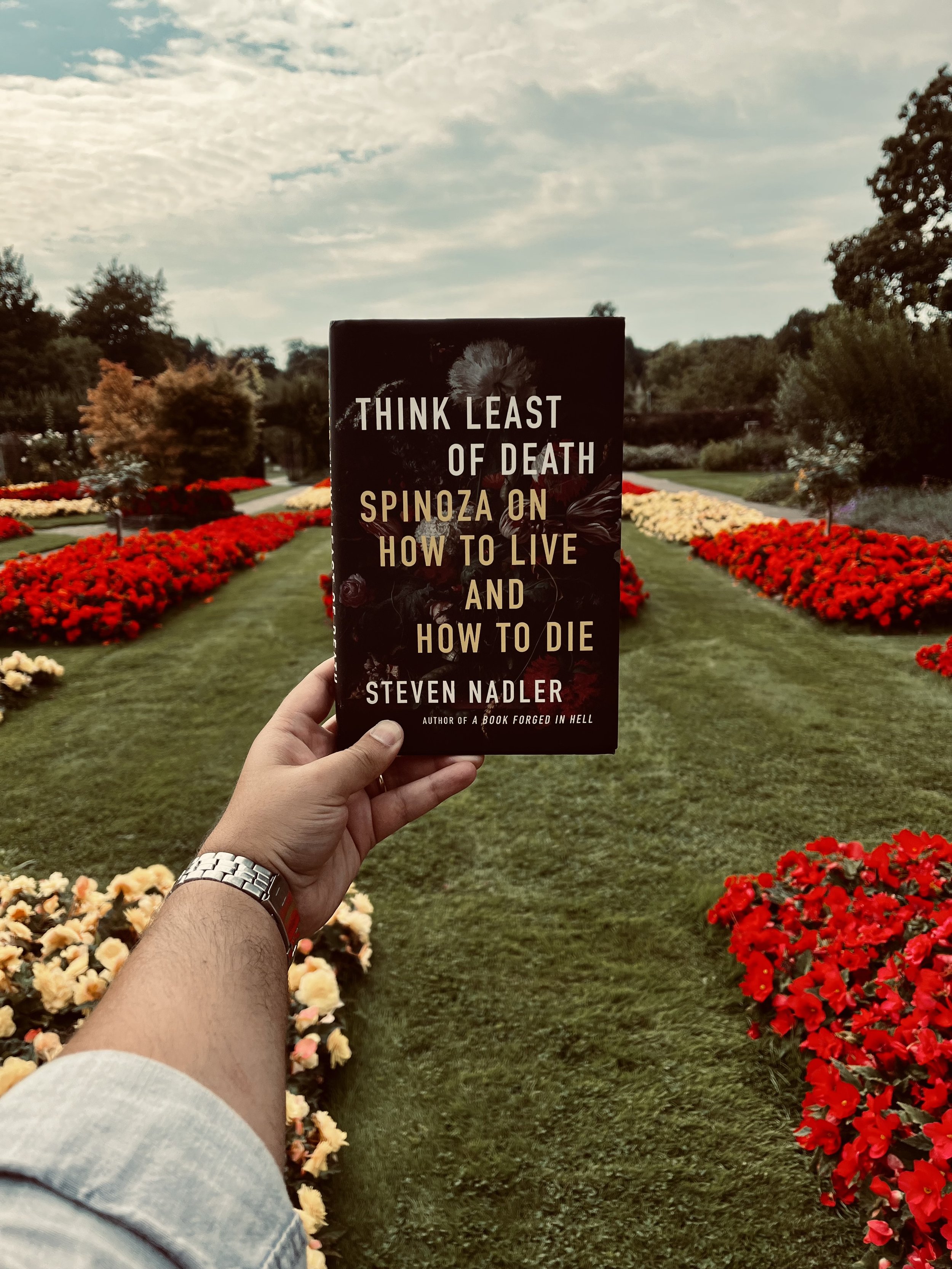8 Philosophy Books for Beginners | January 2023 Edition
“Often a very old man has no other proof of his long life than his age.”
It’s strange to think that this quote, and perhaps the whole book On the Shortness of Life, was inspired by the incessant asthma attacks that Seneca experienced throughout his life.
Roman doctors nicknamed asthma ‘rehearsing death’ and the Roman philosopher Seneca, who was also a tutor to Emperor Nero, suffered a severe version of it. Each attack could happen at any moment and put an end to his life.
This ailment, of course, was not the only thread in the rich weave of Seneca’s life, but it tells us a lot how this fleeting day-to-day experience influenced Seneca’s timeless ideas.
Below, my dear reader, you can find a list of brilliant books that explore how the ephemeral life experiences of great philosophers, such of Marcus Aurelius, Spinoza, Wittgenstein, or Nietzsche, influenced and created their timeless ideas.
I. Breakfast with Seneca: A Stoic Guide to the Art of Living
Seneca’s short essay On the Shortness of Life turned my worldview upside down when I read it at the age of twenty. In fact, I am yet to meet a person who read Seneca and was left unmoved. It is one of the books that I know I am going to keep rereading till I am 80 or 90.
There are hundreds of books written about him, but David Fideler’s Breakfast with Seneca is one of the best. We discover what life events hide behind Seneca’s ideas and how we can practice this wisdom in our lives.
Here’s one of my favourite quotes by him:
If one does not know to which port one is sailing, no wind is favourable. ~ Seneca
II. I am Dynamite: A Life of Friedrich Nietzsche
Many of your readers, I imagine, are not that unlike me, they have moments where they look at their average everyday life and they think, really? I have to do this? You get to your thirties and your life becomes mind numbingly boring, and you think, maybe I should return to Nietzsche. Maybe his message about the will to power is a reminder not to be complacent in the face of our adult lives.
Those were words from my interview with professor John Kaag, author of a book called Hiking with Nietzsche. It brilliantly illustrates why you should read Nietzsche, but the question is of course - where to start?
Kaag’s book is brilliant, but I’m certain that it should be read after Sue Prideaux’s I am Dynamite!
It is one of the best biographies I’ve ever read. Sue Prideaux is a wonderful writer and an inborn biographer. This book was an absolute page-turner. Prideaux introduces you to Nietzsche’s ideas and shows how those ideas go hand in hand with the experiences Nietzsche had in his life.
III. How to Live: A Life of Montaigne in one question and twenty attempts at an answer
Montaigne is not just another philosopher. He is a dedicated friend.
You’re losing on having a good and wise friend if you have not read any of his essays yet.
Sarah Bakewell can introduce you to this new friend who will accompany you forever.
You might know, dear reader, that Montaigne is responsible for inventing the genre of ‘essay’, which we all enjoyed writing during our university years. (ahm-ahm)
The word ‘essay’ comes from the French word ‘essayer’ which translates to English as ‘to try’ or ‘to attempt’. Montaigne authored dozens of such ‘attempts’ (essays) on topics ranging from ‘solitude’ and ‘friendship’ to even ‘cannibalism’.
For this reason, you come to Montaigne for advice and he will ‘essayer’ (try) to help you through his ideas.
Each of the twenty chapters in Sarah Bakewell’s brilliant book explores a piece of practical wisdom from the life of Montaigne.
IV. How to Think Like a Roman Emperor: The Stoic Philosophy of Marcus Aurelius
Marcus Aurelius’ Meditations is recommended on every possible blog dedicated to philosophy. It’s a must-read, but it can be repetitive. It’s not an easy book to read from the beginning till the end. It must be digested slowly, passage by passage, quote by quote.
Although, Meditations can be read and understood without any prior knowledge about the life of Marcus Aurelius. The meaning of it can change, once you know what Marcus went through in his life. How he became a Philosopher-King.
Donald Robertson’s book is an enjoyable read and a great introduction to Marcus Aurelius and his ideas. You can listen to my interview with Donald below 👇
V. Think Least of Death: Spinoza on How to Live and How to Die
Spinoza’s family wanted their son to live a conventional mundane life, but he spurned it and dedicated his life to philosophy.
In 1656, he was also excommunicated from Amsterdam's Portuguese-Jewish community for "abominable heresies".
In ‘Think Least of Death’ the Pulitzer-prize finalist Steven Nadler gives us an excellent introduction to the life and ideas of Baruch Spinoza - the man who influenced Schopenhauer, Nietzsche, Borges, Wittgenstein, Russel.
Unlike many works on Spinoza, that focus on his epistemology and metaphysics, Nadler explores how Spinoza can teach us how to lead a happy life.
For Spinoza, the life of a free person lies ‘in being an active and self-governing agent.’
In one of my favourite passages, Nadler quotes Spinoza saying:
“The free person .... is in control of his life. He acts rather than reacts. He will certainly do what he wishes but what he wishes is guided from within, by knowledge rather than by imagination, sentiment, or feeling. ”
I didn’t know a lot about Spinoza before reading this book. I’ve read an article here and there but never delved too deep.
I imagined Spinoza’s philosophy to be boring and overly academic but instead discovered it to be life-affirming, encouraging, and inspiring.
I got a feeling as if the ideas of the Stoics and Nietzsche merged in Spinoza.
(He was influenced by the former, and influenced the latter)
VI. At the Existentialist Café
'Paris, near the turn of 1932-3. Three young friends meet over apricot coctails at the Bec-de-Gaz bar on the rue Montparnasse. They are Jean-Paul Sartre, Simone de Beuavoir and their friend Raymond Aron, who opens their eyes to a radical new way of thinking...'
Yes, it’s the same Sarah Bakewell who wrote the book on Montaigne, which we explored two books before. She is a brilliant author who deserves to have two of her books on one list.
In At the Existentialist Café, she explores philosophers such as Edmund Husserl, J-P Sartre, Simone de Beuavoir, Albert Camus, Martin Heidegger, and many others.
It’s a wonderful introduction to the existentialist philosophy, its origins, ideas, and key thinkers.
VII. Wittgenstein: A Duty of Genius
The award of the most difficult philosopher to read goes to…(drumbeat) - Ludwig Wittgenstein! Yes, ladies and gentlemen, he beats even Nietzsche. Nietzsche, in fact, is not that hard to read. In the case of Nietzsche, the difficulty is in the density of his ideas per sentence. But Wittgenstein… Wittgenstein is a different sort of mind.
Once again, I have to repeat that you cannot fully understand a philosopher’s ideas if you don’t know about their life. In the case of Wittgenstein, you cannot understand him at all if you don’t know about his life.
This man volunteered to be on the deadly frontline of the First World War because he believed that only by staring in the face of death one can truly live. Here’s an Instagram post where I tell this story in detail.
A wonderful and engaging read that can tell you the noblest paths of all - the path of becoming a genius.
VIII. Philosopher of the Heart: The Restless Life of Søren Kierkegaard
If you suffer from anxiety, you must read Kierkegaard’s works. His ideas do help. I speak from experience. Which of Kierkegaard’s works to read first will depend on what you’re going through in life, but the best place would be Claire Carlisle’s biography called Philosopher of the Heart.
“Anxiety is the dizziness of freedom,” Kierkegaard says.
This ‘dizziness of freedom’ comes from the uncertainty that surrounds our life. The fact that we must live our lives forwards, but only can understand backwards requires a belief, a true belief, not the fake and delusional one that Kierkegaard saw in Christians of Copenhagen in his time.








